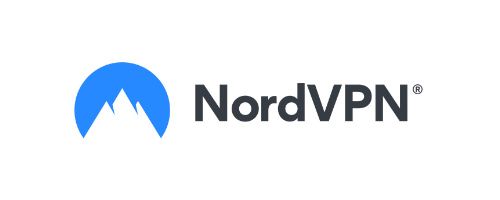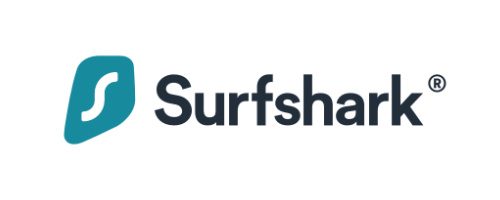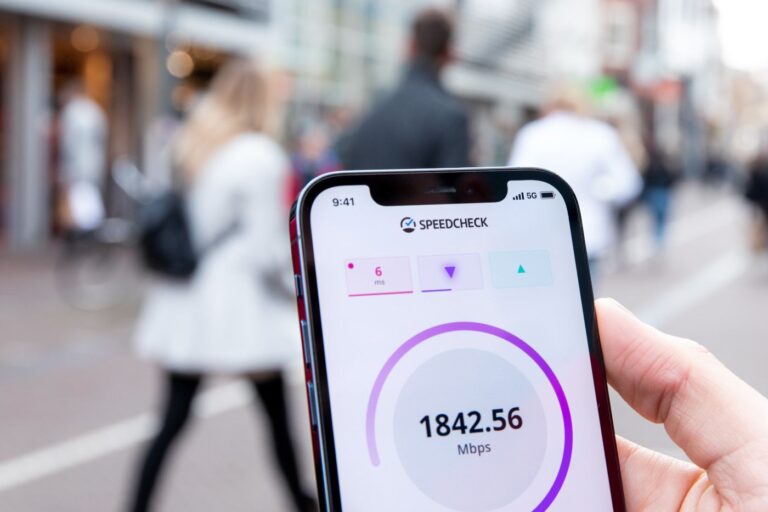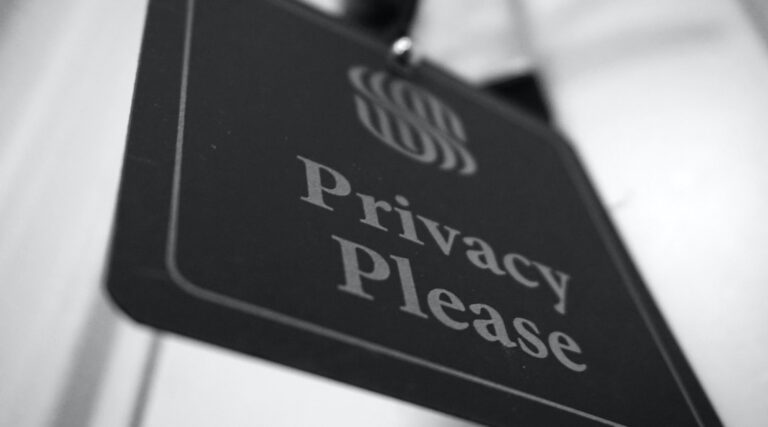Hey there, fellow internet user! So, you’re looking for a trusty VPN to keep your online activities safe and secure, huh?
Well, you’ve probably come across a bunch of VPN speed tests that claim to help you find the best one. But let me tell you a little secret: those speed tests might not be as helpful as you think. You see, server speeds can change quite a bit, so they’re not always the best indicator of a top-notch VPN service.
Now, don’t get me wrong—speed is important. But what’s even more crucial is how well a VPN protects your privacy online. After all, that’s what it’s really there for, right?
So, stick around and let’s chat about the best way to choose a VPN, focusing on what truly matters: keeping your digital life private and secure!
👋 This post contains affiliate links, and I may earn a commission at no extra cost to you.
Best VPNs for speed & security
If you’re in a hurry, and you just want to get to the summary first, here are my top recommendations for the best VPNs that excel in both areas:
NordVPN
Renowned for its sprawling server network and stellar security features, NordVPN is a fabulous option for folks wanting a mix of speed and privacy.

Special NordVPN Offer!
Starting at just $2.99/month!
Get VPN protection from NordVPN, one of the most reliable VPN companies in the world!
With a cool 5,200 servers dotted across 60 countries, NordVPN delivers a dependable and zippy connection thanks to its NordLynx protocol, which is built on the super-modern WireGuard technology.
Plus, this VPN rocks AES 256-bit encryption, a no-logs policy, and advanced security features like Double VPN and CyberSec to keep your online escapades safe and sound.
ExpressVPN
With a whopping 3,000+ servers spread across 94 countries, ExpressVPN brings you an outstanding mix of speed and security. Their very own Lightway protocol is crafted to deliver lightning-fast connections, all without skimping on your privacy.
And you know what? With AES 256-bit encryption, a rock-solid no-logs policy, and a trusty built-in kill switch, ExpressVPN makes sure your online adventures stay private and safe, all while zipping along at top-notch speeds.
ProtonVPN
Developed by the same team behind the secure email service ProtonMail, ProtonVPN is focused on providing robust privacy protection.
With a relatively smaller network of over 1,200 servers in 55 countries, ProtonVPN still delivers excellent speeds, thanks to its support for the WireGuard protocol.
Its commitment to privacy is demonstrated through a strict no-logs policy, AES 256-bit encryption, and perfect forward secrecy, ensuring your data stays secure.
Surfshark
As a relative newcomer to the VPN market, Surfshark has quickly made a name for itself, offering both speed and security at a budget-friendly price.

The Best VPN Deal for 2024!
82% off + 2 Months Free
With more than 3,200 servers across 65 countries, Surfshark provides fast connections using the WireGuard protocol. This VPN also prioritizes privacy with a no-logs policy, AES 256-bit encryption, and unique features like CleanWeb, which blocks ads and malware.
Each of these VPNs offers a great balance of speed and security, making them solid choices for users who value both aspects.
The most important VPN features for privacy
Alright, now that we’ve established that speed tests aren’t the be-all and end-all of VPN evaluation, let’s dive into the juicy stuff: the most important VPN features for privacy. After all, the main reason people use VPNs is to amp up their privacy game on the internet.
You see, even if a VPN is lightning fast, it’s not doing you much good if it’s unreliable when it comes to privacy.
🤔 Imagine a VPN that’s super speedy but leaks your data like a sieve—totally defeats the purpose, right?
That’s why the key metrics you should focus on when selecting a VPN are stability and the no-logs policy. So let’s break it down and take a closer look at these two crucial aspects.
VPN Stability – The #1 Privacy Feature to Look For
So, what’s the deal with VPN stability, and why should it be the #1 privacy feature on your radar?
Well, when you’re using a VPN, your internet connection is routed through a VPN server, which can impact your internet speed.
With so many VPNs on the market, it’s important to find one that won’t leave you hanging in the middle of a crucial download or an intense online gaming session.
👋 Even the fastest VPN won’t be much help if it keeps disconnecting or failing to hide your internet activity.
A stable VPN, on the other hand, ensures that your connection remains consistent and secure. After all, you’re relying on it to mask your online presence and protect your data from prying eyes.
So, when you’re on the hunt for the perfect VPN, keep an eye out for stability as a top priority. You want a VPN that can handle your typical internet usage without dropping the ball on your privacy.
Up next, let’s talk about another vital privacy feature: the no-logs policy!
The no-logs policy – the dealbreaker feature
Now, let’s dive into the no-logs policy—a total dealbreaker feature when it comes to choosing a VPN service. Remember, we’re in this for the perfect blend of speed and security, so a VPN without a no-logs policy just won’t cut it.

Special NordVPN Offer!
Starting at just $2.99/month!
Get VPN protection from NordVPN, one of the most reliable VPN companies in the world!
So, what’s the big deal about this policy? Well, when you use a VPN, you want to make sure your internet activity stays between you and, well, no one else.
👋 If a VPN doesn’t guarantee a no-logs policy, it means they might be keeping track of your online actions, which is a huge no-no.
That’s like inviting an internet service provider (ISP) into your private life, and who wants that?
When you’re searching for a secure VPN, always make sure they have a clear no-logs policy in place. This ensures that your online activities remain truly private, allowing you to use the internet with confidence and peace of mind.
A quick word of caution: be wary of free VPNs. Remember the saying, “If you’re not paying for the product, you are the product?” Well, that often rings true for free VPNs.
While not all free VPNs are bad, it’s essential to scrutinize their privacy policies and make sure they’re not cutting corners when it comes to protecting your data.
Now that we’ve covered the importance of VPN stability and no-logs policy, you’re well on your way to finding the perfect VPN to keep your online life safe and sound.
What Is the Optimal Internet Speed for Using a VPN?
Now that we’ve covered the crucial privacy features of a VPN, let’s discuss the optimal internet speed for using one.
While speed isn’t the only thing that matters, it’s still important to have a connection that can handle your everyday tasks.
To help you gauge the right speed for your needs, let’s take a look at this handy table, outlining the minimum and recommended speeds for common online activities:
| Activity | Minimum Speed (Mbps) | Recommended Speed (Mbps) |
|---|---|---|
| Browsing & Email | 1 | 3 |
| Social Media | 1 | 3 |
| Video Calls (SD) | 1.5 | 3 |
| Video Calls (HD) | 3 | 5 |
| Streaming Music | 2 | 5 |
| Streaming Video (SD) | 3 | 5 |
| Streaming Video (HD) | 5 | 10 |
| Streaming Video (4K) | 25 | 35 |
| Online Gaming | 3 | 10 |
| Large File Downloads | 10 | 20+ |
Keep in mind that these are general guidelines, and your specific needs might vary depending on factors like the devices you use, the quality of your internet service, and the VPN protocol you choose. A good VPN provider will offer multiple protocols, allowing you to balance speed and security based on your priorities.
It’s also important to remember that using a VPN might cause a slight decrease in your connection speed due to the extra layer of encryption. However, a reliable VPN provider will work to minimize this impact.
If you’re experiencing a significant decline in speed, you might want to try switching to a different protocol or connecting to a closer VPN server.
How to Properly Test VPN Speed?
Alright, now that we’ve covered the essentials of VPNs, you might be wondering: how can I properly test a VPN’s speed? Well, believe it or not, there’s no one-size-fits-all approach to speed testing.
The key is to mimic your real-world usage as much as possible, so you get a clear idea of how the VPN will perform when you actually need it.
Provided by Meter.net
If you’re looking to stress test a VPN connection, here’s a fun little experiment you can try:
- Connect all your allowed devices to the VPN service,
- fire up your favorite Netflix show or a 4K movie from Amazon, and
- start streaming on all your devices simultaneously, using the same VPN server.
This should give you a good sense of your VPN’s capabilities and whether it can handle your heaviest usage without breaking a sweat.

Special NordVPN Offer!
Starting at just $2.99/month!
Get VPN protection from NordVPN, one of the most reliable VPN companies in the world!
For those who just want to occasionally check their VPN speed, tools like Speedtest.net or other online services can help you measure the upload and download speeds.
When testing your VPN speed, remember to choose a VPN server that’s close to your physical location, as this can help reduce latency and provide faster results.
Also, please keep in mind that your speed may vary depending on the time of day, network congestion, and other factors.
So, it’s a good idea to run multiple tests at different times to get a more accurate picture of your VPN connection speed.
How Do You Speed Up VPN?
Now that we’ve explored VPN speeds and how to test them, you might be asking: “How do I speed up my VPN?” Don’t worry, we’ve got you covered! Here are some handy tips to help you get the most out of your VPN experience:

Choose the right VPN server location
VPN speed depends largely on the server location you choose. Connecting to a server close to your physical location can help reduce latency and improve your connection speed.
👋 Most VPN apps will automatically select the best server for you, but it’s always a good idea to double-check and make adjustments as needed.
Try different VPN protocols
Every VPN provider offers different protocols, each with its own balance of speed and security. OpenVPN is often considered the gold standard for security, but it may not always be the fastest option.
Try experimenting with different protocols like WireGuard, IKEv2, or L2TP/IPSec to find the one that works best for you.
Check your internet connection
Remember, your VPN speed is influenced by your baseline internet connection. If you’re experiencing slow speeds even without a VPN connection, the issue might be with your internet service provider (ISP).
Run a speed test without the VPN connected to get an idea of your average speed loss when using a VPN.
Use a wired connection
Wi-Fi connections can sometimes affect your internet speed, especially if you’re far from the router or dealing with interference. If possible, try using a wired Ethernet connection to boost your speed and ensure a more stable VPN experience.
Upgrade your VPN
Not every VPN is created equal. If you’ve tried all the tips above and are still experiencing slow speeds, it might be time to consider switching to a different VPN provider.
Look for a VPN with a reputation for fast, reliable connections and a wide range of server locations. Don’t forget to prioritize privacy features like a no-logs policy and strong encryption, too.

Special NordVPN Offer!
Starting at just $2.99/month!
Get VPN protection from NordVPN, one of the most reliable VPN companies in the world!
Close bandwidth-hogging apps
Some apps and programs on your devices can consume a significant amount of bandwidth, which can slow down your VPN connection.
Close any unnecessary apps or pause downloads and updates while you’re connected to a VPN to free up bandwidth and potentially speed up your connection.
Restart your devices
It’s a classic solution for a reason! Sometimes, simply rebooting your devices, router, and VPN app can resolve any temporary issues and improve your VPN speed.
Optimize your router settings
If you’re tech-savvy, you might want to explore your router’s settings to optimize its performance.
Tweaking settings like QoS (Quality of Service) or enabling VPN pass-through can sometimes improve your VPN speed. Just be cautious when making changes, and consult your router’s manual if needed.
By applying these tips and tricks, you can help ensure that your VPN connection remains fast and reliable without sacrificing security and privacy.
Can a VPN improve Internet speed?
Now, you might be wondering, “Can a VPN actually improve my internet speed?” The answer is both yes and no, depending on the specific circumstances.
Under certain conditions, a VPN can indeed increase your internet speed. This is particularly true when your internet service provider (ISP) is throttling, or artificially slowing down, specific types of traffic. For example, some major ISPs have been known to throttle streaming entertainment services like Netflix to manage network congestion or promote their own services.
In such cases, using a VPN can help boost speeds for certain services by preventing the ISP from detecting your online activities and bypassing any throttling or bandwidth restrictions they may impose. By encrypting your data and routing it through a VPN server, your ISP is unable to identify the type of traffic you’re generating, allowing you to enjoy your favorite content without being throttled.
👋 However, it’s important to note that under normal circumstances, a VPN cannot speed up your connection.
In fact, due to the added layer of encryption and the process of routing your data through a VPN server, you may experience a slight decrease in speed when using a VPN. That said, a quality VPN will minimize this impact and still provide a stable and reliable connection.
So, while a VPN won’t magically speed up your internet connection, it can help you avoid ISP throttling and ensure a consistent browsing experience.
If you have more questions: VPN Speed FAQs
Why are VPN speed tests so different from one reviewer to another?
There are several factors that contribute to the variability of VPN speed test results among different reviewers, including:
- The load on the reviewer’s internet connection: The baseline internet speed of the reviewer can impact the test results, as the VPN can only work as fast as the underlying connection.
- The load on the VPN server being accessed: If a server is heavily loaded with users, it may result in slower speeds during testing.
- The distance between the reviewer and the server: Speeds can be affected by the physical distance between the reviewer’s location and the VPN server they connect to, as well as network congestion along the route.
- Different reviewers may use different testing methods: Some reviewers might use speed testing websites, while others might measure real-world performance with activities like streaming or downloading files. This can lead to varying results.
These factors combined can result in differing speed test outcomes, making it essential to consider multiple reviews and sources when evaluating a VPN’s performance.
Is NordVPN faster than ExpressVPN?
It’s difficult to definitively say whether NordVPN is faster than ExpressVPN or vice versa, as both VPN providers offer fast connection speeds. Some reviewers might report NordVPN as being faster, while others might claim ExpressVPN holds the edge.
These discrepancies can arise due to the various factors affecting VPN speed that we mentioned earlier, such as server load, distance to the server, and the reviewer’s internet connection.
Instead of focusing solely on speed, it’s essential to consider the security features that both NordVPN and ExpressVPN offer.
Both providers are known for their robust security measures, including strong encryption, no-logs policies, and advanced privacy features.
Ultimately, both NordVPN and ExpressVPN are great choices, and the best option for you may depend on your specific needs and preferences.
Why do VPNs slow down in time?
VPNs can sometimes slow down over time due to factors like increased server load. As more users connect to a particular VPN server, the available resources may become strained, leading to slower speeds. This is the most probable explanation for such slowdowns.
👋 To address this issue, some VPN apps are designed to detect a slowdown and automatically reconnect in the background to a nearby server with better speeds.
Users have reported experiencing this behavior with VPN providers like ExpressVPN and Surfshark. These automatic adjustments help maintain a consistent, fast connection without requiring any manual intervention.

The Best VPN Deal for 2024!
82% off + 2 Months Free
Do VPNs have speed caps?
Speed caps are generally not a common practice among reputable paid VPN providers, as they aim to offer the best possible experience to their users.
However, it’s more likely for free VPNs to implement speed caps as a way to manage their resources, encourage users to upgrade to paid plans, or cover the costs of providing the service. When choosing a VPN, it’s essential to consider both speed and security features.
Opting for a reliable paid provider instead of a free VPN can help ensure you receive a consistent, uncapped connection.
What is the fastest VPN protocol?
The search for the fastest VPN protocol often leads users to consider various options, each with their own benefits and drawbacks.
Among these options, WireGuard is widely regarded as the fastest VPN protocol currently available. Its efficient design and streamlined performance make it an attractive choice for users seeking the best possible speeds.
WireGuard is more efficient than OpenVPN, which has long been a popular choice for VPN users. While OpenVPN is still reliable and secure, it may not offer the same level of speed as WireGuard.
Other fast VPN protocols worth considering include IKEv2, Lightway, and SoftEther.
IKEv2 is known for its excellent connection speeds, especially on mobile devices, while Lightway, developed by ExpressVPN, is designed for high-speed connections without compromising on security.
SoftEther is another fast and highly versatile protocol that supports various encryption and authentication methods.
When choosing among the fastest VPN services, it’s crucial to remember that your base internet connection plays a significant role in your overall VPN experience.
A fast VPN protocol can help minimize the speed drop typically associated with using a VPN, but it cannot make your connection faster than your average VPN-less speed.
When you select a VPN with a fast protocol like WireGuard, IKEv2, Lightway, or SoftEther can help you speed up your VPN connection and enjoy a more seamless browsing experience.
Should I change the encryption type to speed up my VPN?
While the encryption type can have an impact on your VPN speeds, it’s not typically the main culprit for a slow VPN connection. Changing the encryption type may not result in a significant improvement in your VPN speed, and doing so could potentially compromise the security of the VPN you use.
Instead of altering the encryption type, your best bet is to select a VPN server closer to your location, which can help minimize latency and improve your overall connection speed.
Another option is to use split tunneling, a feature available in many VPN apps that allow you to route some applications outside the VPN connection. This can help increase speed for those applications that don’t require the built-in security of a VPN.
Should I switch to a VPN that is faster?
Considering a switch to a faster VPN can be a practical option if you’ve exhausted all possible tweaks to your current VPN settings without achieving satisfactory speeds.
👋 However, it’s crucial not to sacrifice essential security features in the process of seeking a faster connection.
Before making the switch, ensure that the new VPN service supports modern VPN protocols, which can help minimize the impact on your connection speed. Check for factors like no-logs policies, strong encryption, and additional privacy features as well.
Keep in mind that your base internet connection can also affect VPN speeds, and switching providers may not always result in a significant difference in speed. It’s important to evaluate and compare VPN speeds thoroughly before committing to a new provider.
Conclusion
In conclusion, when choosing a VPN, it’s essential to strike the right balance between speed and security. While VPN speed tests can provide some insight into a provider’s performance, it’s crucial not to overlook other important aspects like privacy features, stability, and no-logs policies.
As we’ve explored in this article, there are several ways to optimize your VPN connection speed, including selecting modern VPN protocols, choosing servers closer to your location, and utilizing split tunneling. However, it’s also vital to remember that your base internet connection plays a significant role in your overall VPN experience.
When evaluating VPN options, take the time to research and compare providers based on their security features and commitment to privacy, in addition to their speed offerings. By doing so, you can ensure that you select a reliable and efficient VPN that meets your specific needs and provides a seamless browsing experience without compromising your online privacy.







